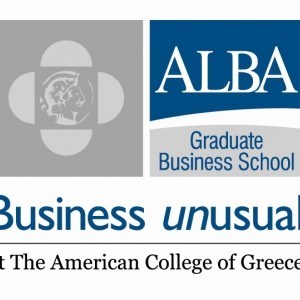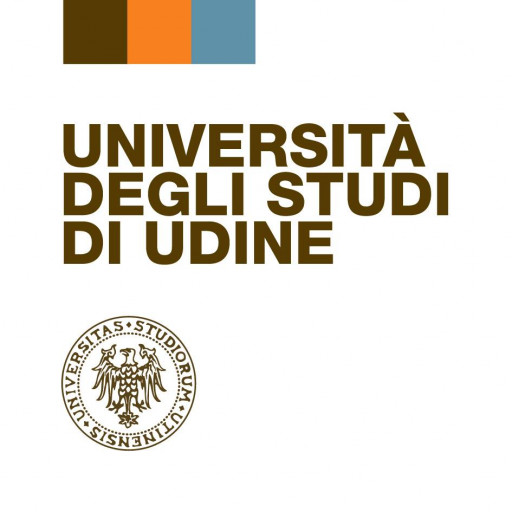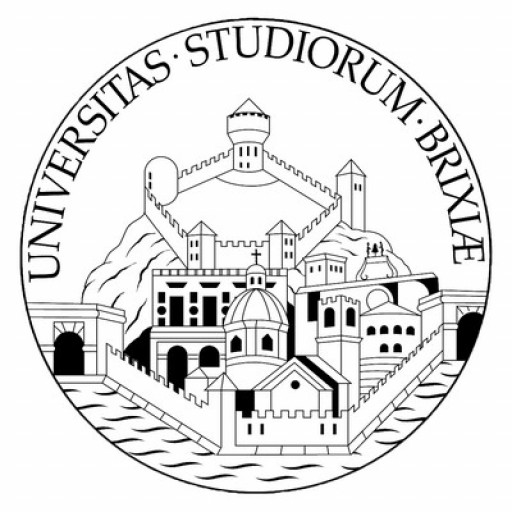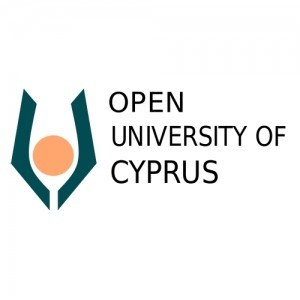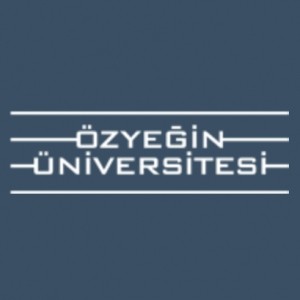Photos of university
Bank on this opportunity
The global financial services industry is undergoing accelerated and fundamental transformation. Banks are in need of professionals who can deliver exceptional results through innovation and entrepreneurship. Now is the time to invest in education that will make a difference to your future.
Under the auspices of the Hellenic Bank Association (HBA), the ALBA MBA in Banking program is designed to prepare professionals to confront unprecedented challenges in the global financial services industry in a way which is both competitive and ethically sound. Inspirational leadership, effective decision making, problem solving and prudent change management are some of the skill-sets actively promoted in this program.
The ALBA MBA in Banking is designed for:
- Highly motivated individuals, with a firm belief in the value of investing in education and with the determination to rise to the challenges facing the financial services industry.
- Professionals who wish to get the benefits of an MBA while at the same time specializing in the knowledge and tools of the banking and financial services sector.
The ALBA MBA in Banking Program starts in September every year and has a duration of 12 to up to 48 months.
Participants who wish to attend in full-time mode will conclude their studies in 12 months and will attend classes every day, during weekdays.
Working professionals who wish to attend in part-time mode, will conclude their studies in 24 months the
earliest (can be extended to up to 48 months) and will attend classes usually twice per week, during weekdays between 18:00 to 22:00.
Program courses are selected to provide both the analytical tools required for complex
problem-solving in all areas that cover the operations of a bank. Courses typically
integrate case studies, lectures and discussions by professors and prominent business leaders.
Highlights of the Program:
- Partnership with the Hellenic Bank Association (HBA): The ALBA MBA in Banking is HBAs program of choice at the highest level of education.
- Specialized courses in Banking and Finance: Financial Modeling, Investments, Corporate Finance, Financial Institutions & Markets and Banks & Regulations are just a few.
- Banking Workshops: Delivered by distinguished industry leaders in conjunction with top executives from the Hellenic Bank Association, they provide in-depth insight into the cutting-edge of banking practice.
- Leadership Development: Through classroom teaching and personal coaching, students embark on a journey of self-awareness and personal development, identifying strengths and areas of improvement and putting their aspirations into a coherent and dynamic learning plan for the future.
- Entrepreneurship: ALBA is one of the elite European Business Schools in entrepreneurship, as demonstrated by the exceptional performance of our student teams in the European Business Plan of the Year Competition (EBPYC). Students spend four months working on a business plan for a new venture, either to grow an existing business or to create a start-up, and are expected to deliver attainable results.
The Banking programme at the Athens Laboratory of Business Administration is a comprehensive and rigorous academic offering designed to equip students with a deep understanding of the financial sector, banking operations, and economic principles. This programme aims to prepare students for a successful career in the banking industry by providing them with both theoretical knowledge and practical skills necessary to navigate the complex financial landscape. Throughout the course of study, students will explore a wide range of topics including financial markets, banking regulation, credit analysis, risk management, monetary policy, and financial technology. The curriculum emphasizes the development of analytical and quantitative skills, enabling students to assess financial data accurately, make informed decisions, and develop innovative financial solutions.
Students will also engage in case studies, industry projects, and internships that provide real-world experience, bridging the gap between academic concepts and practical application. The programme emphasizes ethical standards and responsible banking practices, preparing graduates to contribute positively to the financial sector while adhering to regulatory frameworks and promoting sustainable growth. Throughout their studies, students will benefit from the expertise of faculty members with extensive experience in banking and finance, as well as from guest lectures by industry professionals. The programme encourages a global perspective, examining international banking systems and financial institutions, which is vital in today’s interconnected economy.
Upon completion of the programme, graduates will be well-prepared for various roles within banks, financial institutions, consulting firms, or regulatory agencies. They will possess the necessary skills to analyze financial opportunities, manage risks effectively, and contribute to the strategic development of financial organizations. The Athens Laboratory of Business Administration’s Banking programme offers a challenging yet rewarding educational experience that combines academic excellence with practical relevance, positioning graduates for a dynamic and evolving financial industry.
Program requirements for the Banking degree at the Athens Laboratory of Business Administration include a combination of foundational coursework, specialized banking modules, and practical experience components. Applicants are typically expected to hold a high school diploma or equivalent qualification demonstrating strong performance in relevant subjects such as mathematics, economics, and business studies. Proficiency in English is usually required, often demonstrated through standardized tests like TOEFL or IELTS, depending on the applicant’s country of origin.
The curriculum emphasizes core financial principles, including banking operations, financial analysis, and risk management, along with courses in accounting, law, and information technology relevant to modern financial institutions. To graduate, students must complete a set number of credits through coursework, examinations, and project work, ensuring they develop both theoretical knowledge and practical skills. Internships or work placements are highly encouraged or mandated to provide real-world experience in banking environments, fostering integration of learned concepts with industry practices.
Moreover, the program may require students to participate in seminars, workshops, or conferences related to banking and finance, to stay current with industry trends and network with professionals. Successful completion of a final comprehensive exam or thesis may also be necessary as part of the graduation criteria. Entrance requirements stipulate a transparent selection process based on academic performance, relevant extracurricular activities, and, in some cases, personal interviews. Continuous assessment throughout the program, including quizzes, assignments, and group projects, helps monitor student progress. The program aims to equip graduates with the competencies needed for a professional career in financial institutions, banking compliance, or financial consultancy, and prepare them for potential further specialization or postgraduate studies.
Funds for the Banking program are primarily sourced through a combination of university allocations, government support, tuition fees, and potential research grants. The Athens Laboratory of Business Administration (ALBA) University allocates a specific budget to support the development and sustainability of its academic programs, ensuring the systematic delivery of high-quality education. Additionally, students enrolling in the Banking program may be eligible for scholarships, financial aid, or partial funding opportunities provided by the university aimed at promoting accessibility and inclusivity. These financial supports are designed to reduce barriers to education and encourage talented students to pursue their studies without undue financial burden.
The program's operational costs include faculty salaries, administrative expenses, learning materials, and infrastructure maintenance, all of which are financed through the university's overall budget. Tuition fees paid by students contribute significantly to the program’s financial sustainability, with fee levels determined annually based on institutional policies and market conditions. In some cases, external funding may be sought from governmental agencies or private sector partners interested in fostering banking and financial expertise among university students. Such grants or sponsorships are aimed at fostering research, practical training opportunities, and curriculum development.
The financial planning for the Banking program also includes investments in technological resources such as financial databases, trading software, and simulation tools, which enhance the educational experience. The program benefits from the university's strategic partnerships with financial institutions and industry stakeholders, which may also provide funding or in-kind support for internship programs, guest lectures, and case studies. This ecosystem ensures a balanced and sustainable financial model that allows the program to maintain academic excellence while remaining accessible to a diverse student body. The long-term financial strategy includes continuous review and diversification of funding sources to adapt to changing economic conditions, ensuring the program’s resilience and ongoing growth.
The Banking program offered by the Athens Laboratory of Business Administration (ALBA) is designed to provide students with a comprehensive understanding of the financial sector, focusing on banking operations, financial markets, and the regulatory environment. The curriculum integrates fundamental principles of finance, economics, and management, enabling students to develop both theoretical knowledge and practical skills necessary for a successful career in banking and financial services. Throughout the program, students explore various topics such as banking products and services, risk management, financial analysis, credit evaluation, and investment strategies. Emphasis is also placed on the evolving nature of banking technology, digital banking, and the importance of security and compliance in the financial industry.
The program aims to produce graduates who are capable of analyzing complex financial data, making informed decisions, and implementing innovative solutions within banking institutions. Additionally, students gain exposure to international financial markets and international banking practices, equipping them to operate effectively in a globalized economy. ALBA’s teaching methodology combines lectures, case studies, projects, and internships, promoting active learning and practical experience. The faculty responsible for this program consists of expert academics and industry practitioners, ensuring that students learn from experienced professionals who bring real-world insights into the classroom.
Career opportunities for graduates include roles in retail banking, corporate banking, investment banking, financial consulting, and risk management. The program also prepares students for further studies or certifications such as CFA or FRM, which are valuable in the financial industry. Overall, ALBA's Banking program seeks to foster a strong foundation of knowledge, analytical skills, and ethical awareness, essential for the ever-changing landscape of financial services. The university's strong links with financial institutions and its focus on applied learning ensure that graduates are well-positioned to meet industry demands and contribute to the development of the banking sector both locally and internationally.
